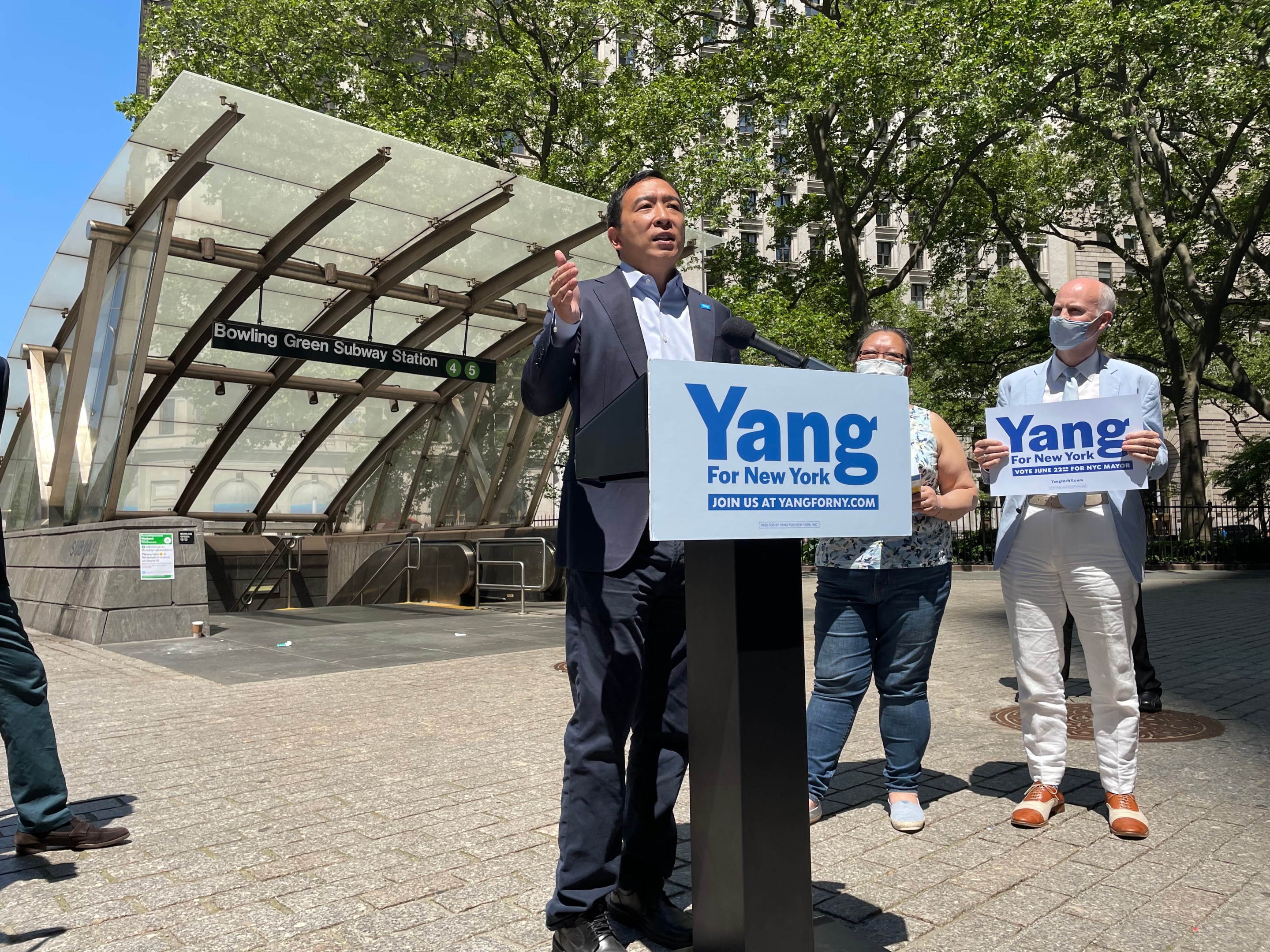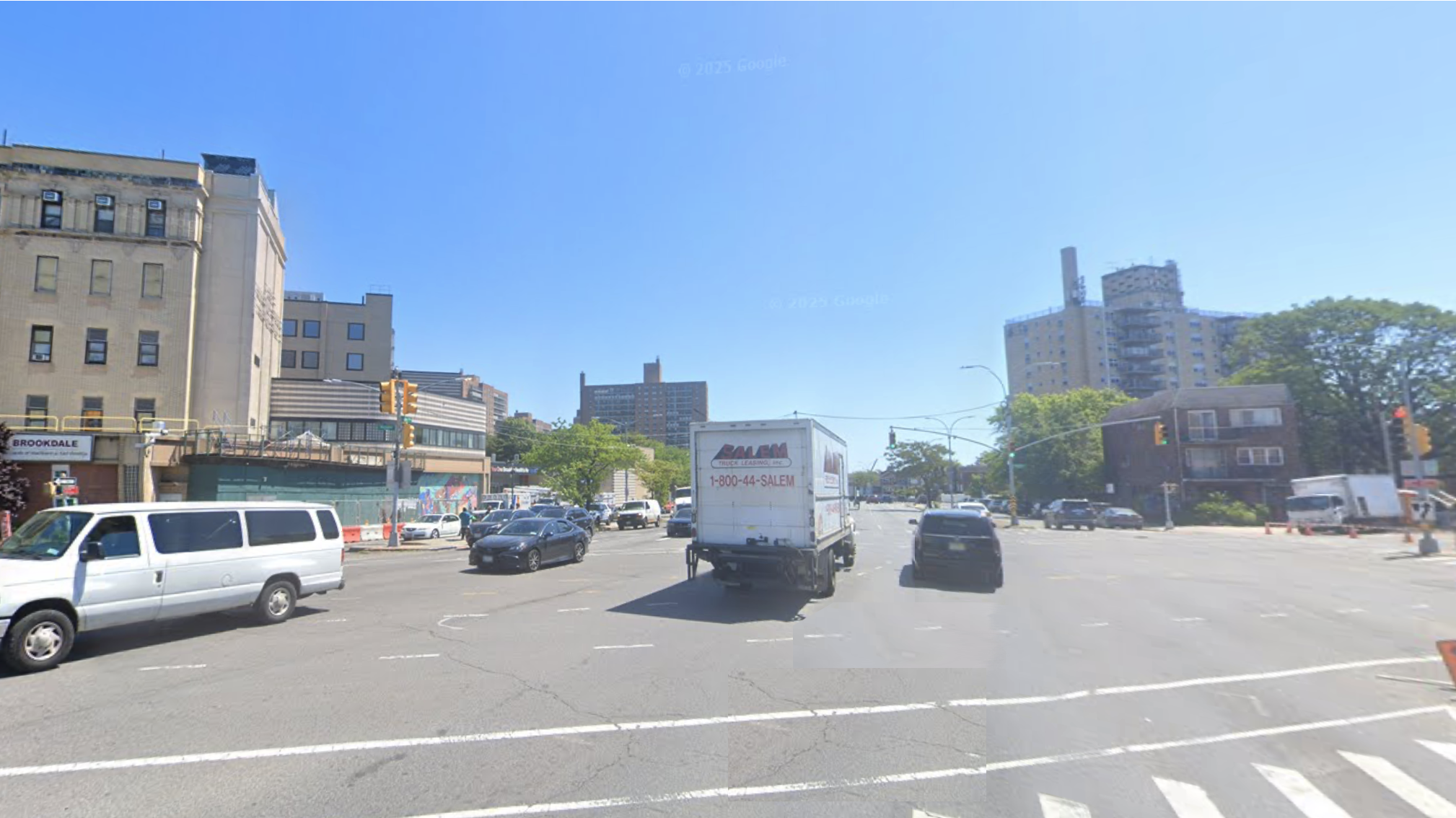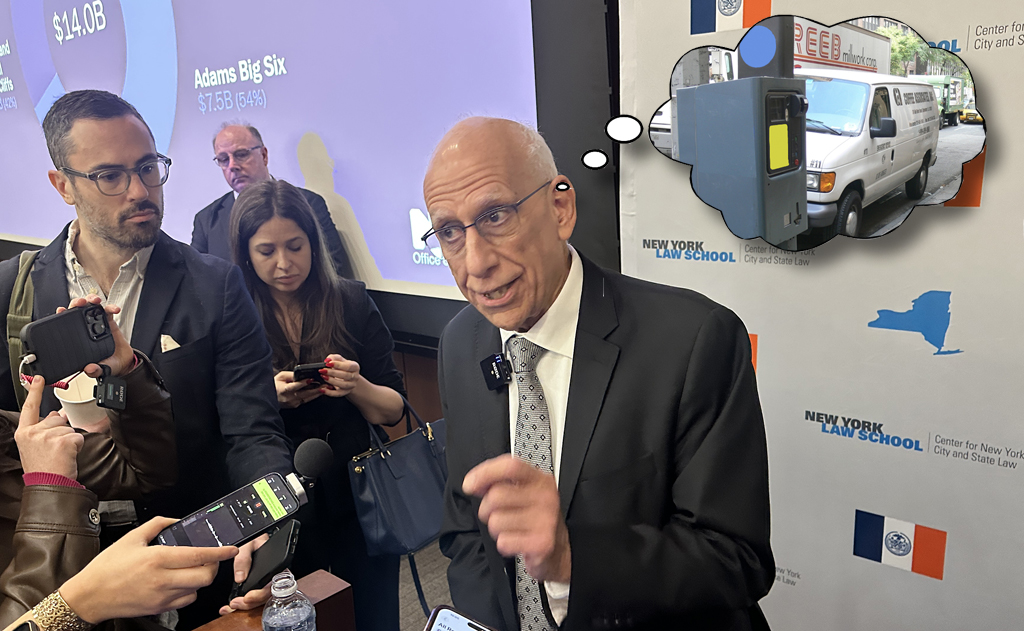This takeover should be ethered.
Andrew Yang's proposal for a municipal takeover of New York City Transit, a Potemkin village of "vision" and "boldness," is bad enough that it should sink his entire campaign.
Yang's plan, or rather the hazy outlines of a plan, was pitched to New Yorkers on Wednesday. It calls for the city Department of Transportation, with its sub-$2-billion budget, to take over and run the city's subways and buses, which currently have an annual operating budget of $10 billion. Such a plan would require state approval, which is not likely to happen.
"The plan is to ask for mayoral control of subways and buses that comprise the bulk of New York City transit, and then have that operating under the Department of Transportation," Yang said on Tuesday morning in front of MTA headquarters.
It's a plan that raises more questions than it answers, questions like "What happens to the MTA's operating budget and operating debt?"
For question like that, Yang brought in former Cuomo administration Director of Operation Jamie Rubin, whose resumé is impressive (unless you like resumés with transit experience, of which this has none). Rubin said that he couldn't explain the plan in full — even though it is a central piece of Yang's case for becoming the mayor of New York City — because the MTA is just too complicated.
"There's only about five people in this world who understand the spaghetti structure that the MTA's debt exists in, OK?" said Rubin. "So, first of all, it doesn't make a lot of sense to ask Andrew Yang or me or anybody else out here exactly how they're going to unwind the financing structure."
Veterans of Albany politics were not amused.
"That's pathetic," said Reinvent Albany Executive Director John Kaheny. "The MTA is paying roughly $3 billion a year in debt service right now, and the people who are getting that $3 billion in debt service understand it and they have lots of lawyers who also really understand it. There's a whole industry of lawyers and accountants who deal with MTA financing who understand this plenty."
Rubin also assured voters that because the MTA already gets money from taxes drawn from the New York City area, the question of funding this gargantuan new city obligation isn't a big deal either. Roughly half of New York City Transit's operating budget comes from fares, there are a host of taxes and subsidies, such as the gas tax, a tax on mortgages inside the MTA service area, and a payroll tax on employers in the MTA service area that are set and controlled by the state. The MTA itself also gets about $2 billion per year from tolls on bridges and tunnels inside the city, further complicating the separation from larger mothership, as the MTA would likely want to hold onto that money (in part to run the commuter rail lines).
"The point is not to unwind the operating revenues that are coming into the subways. We have a lot of services in the city that are provided every day by federal money by state money by city money and we don't ask who's providing which and whether one stops if the city takes on more or adds money to set up a substitute or a brand new program. There is complexity around the financial structure, absolutely, but the actual flow of revenue is not going to change one bit."
Kaehny was unsparing in his criticism of that statement.
"There's a word for that, which is called a lie," Kaehny said in response to Rubin's promise that the money flow wouldn't change. "These are all state dedicated taxes. The city cannot mandate any taxes. Personal income tax in the city, corporate income taxes, all those taxes are controlled by the state."
Yang's plan, as presented in-person and on his website, doesn't deal with the basic reality that $5 billion in taxes that fund the MTA aren't levied by the city.
If you want to be charitable, you can assume that part of the negotiations around the transfer of the transit system would include agreements on these taxes and subsidies. But that's an assumption, and comes with a large risk of making an ass out of both you and umption.
Nothing proposed by Yang deals with the fact that the state could hand the subways and buses to New York City, then turn around and vaporize say, the Metropolitan Mass Transit Operating Assistance Fund, otherwise known as MMTOA, otherwise known as the dedicated transit funding that was raided by Andrew Cuomo so often that the state legislature had to make multiple attempts to pass a law that required him to write a note the next time he attempted to raid the funds. And even after that law was passed, the MTA was looking at hundreds of millions of dollars in missing dedicated tax funds because of a pandemic-era MMTOA raid, something that was only avoided because of a federal rescue package for New York State, .
Yang suggested funding wouldn't be a problem, comparing the challenged to the city's hard fought battle to win "control" of public schools from the state.
"There's ample precedent for the city taking control of something [such as] our schools, and the state continuing to fund them. It's not that when the city has control over something all of a sudden all of the budgetary responsibility falls on New York City," he suggested as an analogous situation.
I've been scratching my head on what he's talking about. Even before mayoral control, the city still...controlled its own schools? And states fund their local school districts. https://t.co/rsp00ZP3b4
— Reema Amin (@reemadamin) May 20, 2021
But it's not analagous; Yang's notion ignores the fact that even after then Mayor Bloomberg won control of the Board of Education, the state and city wound up fighting over adequate school funding for years. Only this year did the city finally get the funding it was looking for during the decade-plus long campaign for fiscal equity fight. Asked if a similar situation could wind up happening if the city has to rely on the goodwill of the state to keep sending dedicated taxes, the campaign ignored the question entirely.
It's all part of a pattern of Yang seeming to not understand basic city politics or policy, such as how the city already runs domestic violence-focused homeless shelters or had a years-long fight over the question of releasing police disciplinary records.
A banner day for @AndrewYang not knowing basic, important things about New York City while campaigning to lead it pic.twitter.com/y1LomT0N9A
— Harry Siegel (@harrysiegel) May 20, 2021
But Wednesday's performance was especially insulting because it rested on the idea that things will just work out somehow and that we're all too stupid to have it respectfully explained to us.
Yang wasn't wrong to say that city control of the buses and subways is a way to break out of the dynamic where a mayor and a governor fight over who's responsible for the lifeblood of New York City. Former mayoral candidate Corey Johnson issued a report in 2019 that laid out a case to create a new bureaucracy to oversee the city's entire transportation world — and that report also relied on some magical thinking (namely that Albany will give the city taxing authority, and labor costs will be negotiated down ... just because). But Johnson's proposal was at least a serious attempt to start a conversation about the specifics of what municipal control of the subway and bus could look like.
But even people who supported Johnson's plan or the general idea of municipal control of the subways came away from Yang's hallucinatory press conference suggesting he didn't know what he was talking about. Ben Kabak of MTA-focused blog Second Avenue Sagas tweeted that the plan was "laughably unserious."
Yang would be wise to pay very close attention to what Cuomo has said lately and how MTA leaders and TWU leaders have been backing him up 100%. That's real, deep-rooted political power the governor isn't going to give up because Andrew Yang asks nicely.
— Second Ave. Sagas (@2AvSagas) May 19, 2021
"It won't work if it's not a good plan," Kabak said, which gets to the heart of the issue.
Yang didn't show up with allies from the TWU, he didn't show up with an Albany legislative leader who pledged to work with him on a way to hand the subways to city fairly, he didn't even show up with an understanding of which bridges the MTA controls. Given almost six months to create a plan beyond making a wish on the Big Egg, one that showed he was ready to tackle an intricate problem worth billions of dollars, Yang just didn't bother. There would be no cause for complaint if Yang showed up with copies of Johnson's "Let's Go!" report, but instead, he showed up and claimed that the MTA made it difficult to see something as basic as its yearly debt service, a number you can find in a dark green slice of a pie chart labeled "Where The Dollars Go."
"So I say to the people of New York, 'I want the subways and buses,' because I want the responsibility of making them work for us and our families," Yang said on Wednesday.
He should not be surprised when New Yorkers answer back: What have you shown us that makes you worthy of that responsibility?






